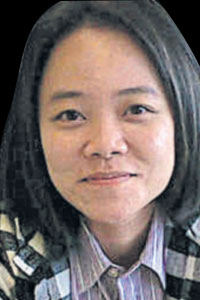With this new surge of Covid-19 cases hitting the country, Thais know that the disease is not new. Certain buzzwords like coronavirus and the new normal are familiar narratives and protective face masks and alcohol-based sanitisers have become common household items.
However, adding to the pandemic's new normal are myths, confusion, and fake news circulating online. This confusion, unfortunately, also comes from the one and supposedly most reliable source -- the authorities.
Let's start with something that affects people's daily life -- can we eat outside?
Earlier this month, the Bangkok Metropolitan Administration (BMA) announced that restaurants could provide dine-in services only from 6am until 7pm. However, the next day -- after receiving complaints from the Thai Restaurants Association -- Prime Minister Prayut Chan-o-cha overruled the BMA's measure and stated that table services could be offered for an additional two hours or until 9pm.
We understand that in such circumstances, the prime minister has the final say. But considering the gravity of this announcement that impacts consumers and business operators alike, the authorities could at least talk among themselves first.
The confusion caused by the government actually started around Christmas Day when it was first announced that people were not restricted from travelling back to their hometowns during the long New Year break. By making such a statement, workers who were far away from home packed their protective equipment along with clothes and New Year presents for their loved ones and hit the road.
But a few days later, authorities in certain highly-infected areas started making announcements and urging people not to travel across provinces to celebrate the start of 2021 at home. However, this was a little too late since many people had already travelled and reached their homes by the time this second round of announcement was released.
Moreover, confusion and headaches also surround the most problematic word of the moment -- lockdown. Earlier this month, we read that five provinces were under a lockdown according to a Facebook post by Deputy Health Minister Sathit Pitutecha. But yet again, the next morning we all woke up to find that Gen Prayut said otherwise. He stressed that while the five hardly-hit areas were under the most strict virus control protocol, they were actually not under lockdown.
While the prime minister made it clear that the country is not under lockdown, Sathit even said via a television news channel that the word "lockdown" might be open to different interpretations.
In this case, without a lockdown, can people in those five areas travel to other provinces? Or can those from elsewhere enter, say, Chon Buri? There is no clear answer.
Besides confusing data provided by the authorities in time of crisis, fake news is also prevalent and it is adding to the already confusing situation. For example, as we wait for the vaccine, people have started offering alternative and cheap hope in the form of a mix of lemon juice, salt and warm water, which was touted as a cure against the novel coronavirus. This health advice was finally declared fake by many experts.
There is also speculation over the reliability of Away Covid-19 application developed by Phitsanulok-based tech start-up Mapedia. Serving as a location-based online map on the Line platform, it detects Covid-19 risks, however, the application was recently defamed by a group of people who said it could steal money. Social media users even went as far as circulating a warning saying that Line users should block all Away Covid-19 features or otherwise, they could be duped.
In the end, the developer of Away Covid-19 came out and said all of this was wrong. Away Covid-19 is a free application that has no fee collection and reminded people who had already deleted or blocked the app that they could reinstall this useful application.
The aforementioned stories are just the tip of the iceberg when it comes to perplexing situations taking place during the outbreak. There are many other issues and questions that have kept our heads spinning. Which masks should we not wear? Do cloth masks protect us from Covid-19? What about those with exhalation valves? Are we going to jail if we fail to install the Mor Chana application on our mobile phone?
With the surge of Covid-19 cases in Thailand, which shows no signs of ending, the virus has proven to be exactly a pandemic of confusion.
Thailand has established many administrative centres -- the Centre for Covid-19 Situation Administration (CCSA), the Anti-Fake News Centre (AFNC) and acronyms many of us don't even recognise. But perhaps the best thing all Thais should hope for right now is not the vaccines but collaboration from all these centres and stakeholders to get the country through this unprecedented catastrophe.
But until then, confusion is still the name of the game.
Arusa Pisuthipan is the editor of Life, Bangkok Post.
